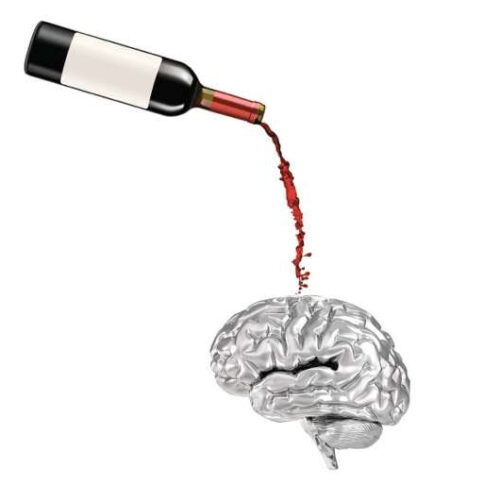by Public Library of Science Moderate drinking is associated with brain iron accumulation. Credit: Mischa Hafferty (CC-BY 4.0, creativecommons.org/licenses/by/4.0/) Consumption of seven or more units of alcohol per week is associated with higher iron levels in the brain, according to a study of almost 21,000 people publishing July 14 in the open access journal PLOS Medicine. Iron accumulation...
Tag: <span>Drinking</span>
Drinking linked to a decline in brain health from cradle to grave
by British Medical Journal Credit: CC0 Public Domain The evidence for the harmful effects of alcohol on brain health is compelling, but now experts have pin-pointed three key time periods in life when the effects of alcohol are likely to be at their greatest. Writing in The BMJ today, researchers in Australia and the UK say evidence suggests...
One way to help ease A-fib: give up drinking
by Serena Gordon, Healthday Reporter (HealthDay)—If you have atrial fibrillation (a-fib)—a potentially dangerous irregular heart rhythm—giving up alcohol could ease your symptoms. That’s what happened when researchers asked people with a-fib who normally have roughly two drinks a day to stop drinking. When they compared the teetotalers to a similar group of people with a-fib...
Consuming alcohol leads to epigenetic changes in brain memory centers
Triggers in everyday life such as running into a former drinking buddy, walking by a once- familiar bar, and attending social gatherings can all cause recovering alcoholics to “fall off the wagon.” About 40 to 60 percent of people who have gone through treatment for substance abuse will experience some kind of relapse, according to...
Marijuana may boost risky effects of drinking alcohol
by Pennsylvania State University As the legalization of medical marijuana and marijuana use are both on the rise in the United States, people are not necessarily using alcohol less and may be unaware of the risks of combining alcohol and marijuana, according to researchers. A new study from Penn State found that compared to people...
How hangovers reduce brain function
by Nick Adams, Swinburne University of Technology Hangovers reduce brain function and memory, according to new research from Swinburne University of Technology (Swinburne) in Melbourne. The research was conducted in the central entertainment district of Brisbane and involved breathalyzing and interviewing participants at the end of a night out. The following morning, more than 100...
Why does my face go red after drinking alcohol?
By Nicole Galan Reviewed by J. Keith Fisher, M.D. Some people develop a distinctive facial flush after drinking alcohol, when their face turns either slightly or very red. Why does this happen, and what does it mean? This side effect of drinking alcohol is more common in people of East Asian descent. Although it does not cause immediate health problems, it...

